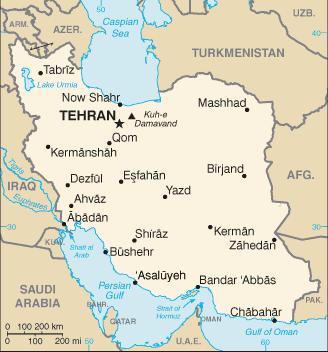
Event Recap: “The Iran Deal: A Reassessment”
On Monday, June 27, the Chicago Council on Global Affairs hosted “The Iran Deal: A Reassessment,” at the Standard Club in Chicago. This event, occurring near the one-year anniversary of the signing of the controversial Joint Comprehensive Plan of Action (JCPoA), sought to assess what the deal has and has not achieved thus far.
The event featured two former career ambassadors: the Honorable Thomas R. Pickering and the Honorable James F. Jeffrey. Ambassador Pickering, who has recently come under scrutiny given his previously undisclosed role at Boeing, which just announced a $25 billion commercial airplane deal with Iran, currently serves as Vice Chairman of international consulting firm Hills & Company. Mr. Jeffrey, a former U.S. Ambassador to Turkey and Iraq, as well as Deputy National Security Advisor in the George W. Bush administration, is presently the Philip Solondz Distinguished Fellow at the Washington Institute. Ivo Daalder, President of the Chicago Council on Global Affairs and former U.S. Permanent Representative to NATO, moderated the discussion.
Daalder began the discussion by asking the former ambassadors to place the Obama administration’s approach to its relationship with Iran in the context of recent history. While both ambassadors are proponents of the Iran deal, Ambassador Jeffrey supports JCPoA with some reservations. He noted that despite Ben Rhodes’ assertions that the Obama administration marked a distinct change in U.S. policy towards Iran, the shift towards opening a dialogue with the Iranians actually began as early as 2006 with President Bush’s appointment of Condoleezza Rice as Secretary of State. The Bush administration subsequently adopted a multilateral approach to its dealings with Iran, using the power of the UN Security Council, the nuclear Nonproliferation Treaty, sanctions backed by U.S. influence over the international banking system, and military pressure to push Iran to limit the development of its nuclear program. The Obama administration has actually continued the course set in the later years of the Bush administration.
The discussion then turned to the question of whether or not Iran desired a nuclear weapon, or simply a nuclear option, a distinction the two speakers agreed is important when considering Iran from the perspective of its regional power. Ambassador Jeffrey sought to clarify this distinction by examining the case of North Korea, which, being surrounded by wealthy, stable, powerful countries, requires a physical nuclear weapon in order to exert influence. In the case of Iran, a relatively powerful state within an unstable region, Ambassador Pickering noted that Iran’s decision to halt the development of its nuclear program in 2003 was largely economic. Pickering continued, that in an unstable region such as the Middle East, economic disaster threatened the Iranian regime more than a nuclear weapon strengthened it, and thus a nuclear option rather than an outright weapon sufficed at the time.
The two speakers disagreed on the extent to which the U.S. and Iran can cooperate to achieve common interests. While Ambassador Pickering believes open lines of communication can help the two countries further mutual goals in the region, such as limiting the spread of ISIS influence and preventing the rise of a Taliban government in Afghanistan, Ambassador Jeffrey was skeptical. He cited the fact the U.S. recently eliminated Taliban leader Mullah Akhtar Mansour as he crossed the border from Iran into Pakistan.
Daalder concluded the discussion by asking each of the speakers what he would say to advise the next President on the U.S. relationship with Iran come January 2017. Ambassador Jeffrey noted that he would counsel the next President to continue according to the path set by JCPoA, but to be wary of attempting to bring Saudi Arabia and Iran to the negotiating table. Contrary to President Obama’s view that Saudi Arabia can be led to eventually agree to share regional power and influence with a rising Iran, “Classic nationalist emotions drive countries that are otherwise relatively rational to disagree violently on a given issue.” Ambassador Pickering advised that the next President should not only stay the course with JCPoA, but also extend its influence to serve as a framework for further nonproliferation efforts around the world. However, he warned against leaning too heavily on the Iran deal without simultaneously taking strong positions on regional strife as it develops. Said Pickering, “The Middle East is too important not to exercise considerable leadership potential. The bicycle principle applies: if you’re not riding forward, you’re falling down.”
Catherine Katz graduated magna cum laude from Harvard in 2013, where she studied history and economics. Most recently, Catherine worked at BlackRock as an Alternative Investments Analyst.





